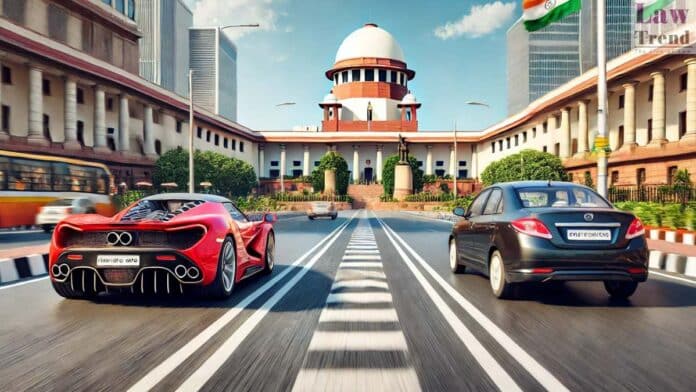The Supreme Court has ruled that motor vehicle tax cannot be levied on vehicles that are not used or kept for use in a ‘public place’, holding that the levy is compensatory in nature and directly linked to the use of public infrastructure such as roads and highways.
A bench of Justices Manoj Misra and Ujjal Bhuyan delivered the verdict while allowing an appeal against a December 2024 judgment of the Andhra Pradesh High Court. The case arose from a dispute between a logistics firm and the state authorities over motor vehicle tax liability on vehicles deployed exclusively inside the premises of Rashtriya Ispat Nigam Limited (RINL) at Visakhapatnam.
Referring to Section 3 of the Andhra Pradesh Motor Vehicle Taxation Act, 1963, the court emphasised that the legislature had consciously used the term ‘public place’ in the charging provision.
“The rationale for levy of motor vehicle tax is that a person who is using public infrastructure has to pay for such usage. If a motor vehicle is not used in a ‘public place’ or not kept for use in a ‘public place’, then the person concerned is not deriving benefit from the public infrastructure and should not be burdened with the motor vehicle tax for such period,” the bench observed.
The judges clarified that the taxable event under Section 3 is the actual use or intended use of a motor vehicle in a public place. Hence, liability arises only when the vehicle is actually used in public or kept for use there.
In this case, the appellant company had been providing logistics support since 1985 and was awarded a contract in November 2020 to handle iron and steel materials at the central dispatch yard within the Visakhapatnam Steel Plant, a restricted campus of RINL.
The firm deployed 36 motor vehicles inside the dispatch yard, an area enclosed by compound walls with controlled entry and exit, manned by CISF personnel. The company argued that no member of the public had access to the premises, making it outside the scope of a ‘public place’.
The Supreme Court accepted this contention, holding that the vehicles confined within the restricted premises were not liable for tax. “Therefore, the said vehicles are not liable to be taxed for the period the said vehicles were used or kept for use within the restricted premises of RINL,” the judgment stated.
The logistics firm had sought exemption from motor vehicle tax from the Andhra Pradesh authorities, but the matter escalated after conflicting rulings by the High Court. A single judge had sided with the firm, ordering the refund of ₹22.71 lakh, but a division bench later reversed that decision.
With the Supreme Court’s ruling, the company’s appeal has now been allowed, reinforcing the principle that motor vehicle tax is strictly compensatory and tied to the use of public infrastructure.




